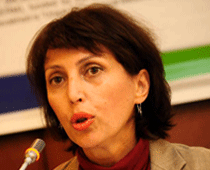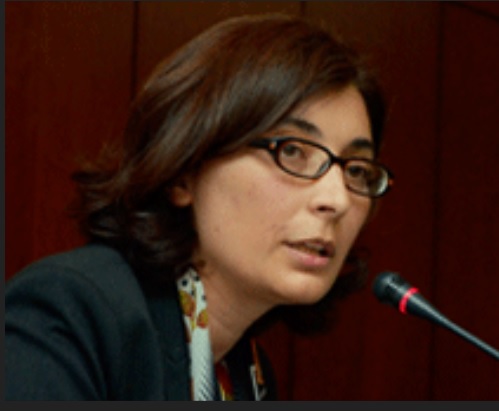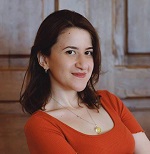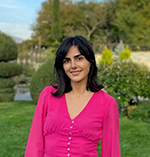Self-regulation
Pursuant to Article 14 of the Law of Georgia on Broadcasting and the Code of Conduct of Broadcasters adopted by the Georgian National Communication Commission (GNCC) in 2009, broadcasters are obliged to establish an efficient complains mechanism for considering customers’ complaints.If a broadcaster breaches the Code of Conduct, apply to us through filling out a provided questionnaire and the Media Development Foundation, MDF will present your complaint in a broadcaster's self-regulation body.
About us
Mission
- Fundamental human rights and freedoms; Open, inclusive and pluralistic society;
- Professional and institutional development of media; Establishment of media accountability and self-regulation mechanisms;
- Critical thinking in a new media ecosystem and resilience building of citizens’ through conscious media consumption;
About organization
Established in April 2008 by a group of professional journalists, the Media Development Foundation, MDF, is a non-governmental, non-entrepreneurial (non commercial) organization aiming to promote:
- Fundamental human rights and freedoms; Open, inclusive and pluralistic society;
- Professional and institutional development of media; Establishment of media accountability and self-regulation mechanisms;
- Critical thinking in a new media ecosystem and resilience building of citizens’ through conscious media consumption;
MDF launched its fact-checking and myth debunking platform - Myth Detector – in 2014, to uncover truth behind the lies, explore hidden agendas, raise the level of media literacy and inform both people and institutions of Georgia about the impacts of disinformation.
Since November 2019, Myth Detector is a verified signature of the International Fact-Checking Network (IFCN) of the Poynter Institute, working alongside with 100 fact-checkers from more than 70 countries around the world and member of #CoronaVirusFacts Alliance and WhatsApp Coronavirus Information Hub.
In September 2020, Myth Detector partnered up with Facebook to fight against misinformation in the framework of Facebook’s Third-Party Fact-Checking Program. Myth Detector reviews and rats the accuracy of content aiming to improve the quality and authenticity of stories in the News Feed. When rated false, Facebook shows the story lower in News Feed, significantly reducing its distribution and warning people who see the post or try to share the post that it has been marked as false. Facebook pays Myth Detector to perform this service for them but it has no say or influence over what Myth Detector fact-checks or what the conclusions are, nor does it want to.
Since 2016, MDF is cooperating with EUvsDisinfo - the flagship project of the European External Action Service’s East StratCom Task Force and is a member of the Open Information Partnership (OIP) bringing together think tanks, fact-checkers, independent media and grassroots organisations to support efforts to counter hostile information influence operations.
Organizational Structure
.jpg)
Program Directions
The educational, research and advocacy directions of the Media Development Foundation entail the following activities:
-
Education: Media literacy, professional development of journalists, cooperation with academia and teachers through trainings and training resources;
-
Research: Fact-checking, researching hate speech and anti-Western propaganda, identification and analysis of malign actors, researching the coordinated inauthentic behaviour (CIB) on social media, researching the financial transparency of media.
-
Advocacy: Advocating the rights of journalists and media consumers, as well as policy issues.
Our team
 Tamar Kintsurashvili, Executive Director |
 Tamar Khorbaladze, MDF Co-founder |

|
 Tinatin Gogoladze, Head of Media Monitoring Department Tinatin Gogoladze, Head of Media Monitoring Department |
 Mariam Akhalkatsi, Communications and Social Media Manager Mariam Akhalkatsi, Communications and Social Media Manager |
 Zviad Mzhavanadze, Tech Administrator Zviad Mzhavanadze, Tech Administrator |
 Tamar Mchedlidze, Multimedia Coordinator Tamar Mchedlidze, Multimedia Coordinator |
 Nika Shekeladze, Researcher Nika Shekeladze, Researcher |
 Nino Gelashvili, Head of Media Programs Nino Gelashvili, Head of Media Programs |
 Rusudan Dzigrashvili, Projects Director Rusudan Dzigrashvili, Projects Director |
 Sopho Chkhaidze, Media Monitor Sopho Chkhaidze, Media Monitor |
 Lana Rokva, Media Analyst Lana Rokva, Media Analyst |
 Salome Norakidze, Media Monitor Salome Norakidze, Media Monitor |
| |
|
|
|
Code of Conduct
Employees of Media Development Foundation (MDF), or any of its affiliates or subsidiaries, performing work for MDF or on its behalf, are expected to act lawfully, honestly, ethically, and in the best interests of the organization while performing duties on its behalf.
All employees of MDF should respect their colleagues. No discrimination on any ground or harassment in interpersonal relations is allowed.
All employees must demonstrate integrity and professionalism in the workplace. All employees should fulfill their job duties with respect toward stakeholders and the community and complete their duties with skill and in a timely manner. Management mustn’t abuse their authority.
All employees should treat MDF’s property, material or intangible, with respect and care. They shouldn’t misuse organization’s equipment andrespect all kinds of incorporeal property, including trademarks, copyright and reports and any information produced by MDF. Employees should use them only to complete their job duties.
Open & Honest Corrections Policy
Employees should correct a mistake immediately once they learn about it. Correction is done clearly and transparently in line with the corrections policy, seeking so far as possible to ensure that readers see the corrected version.
Disciplinary Measures for Violating the Code of Conduct
Violation of the codes of conduct of the Media Development Foundation, Myth Detector, and the International Fact-Checking Network (IFCN), in particular, specific forms, timeframes and implementation procedures, are regulated by the Labor Regulations Code of the Media Development Foundation (Chapter IX, Article 27). The measures are as follows:
-
Verbal warning - in case of accidental misconduct;
-
Reprimand - for negligent violation of codes of conduct and non-compliance with labour ethics requirements;
-
Financial sanction - in case of gross and/or repeated violations of codes of conduct;
-
Termination of the employment contract - in case of deliberate gross violation with prior knowledge of the internal regulations and codes of conduct of the organization and/or after implementing the measures listed above.
The obligation of adherence to the labor regulations code and the code of conduct is stipulated in the employment contacts of the Media Development Foundation.
Privacy Policy
Media Development Foundation (MDF) Privacy Policy
This Privacy Policy document governs the collection and use of information provided by users to the Media Development Foundation (MDF) through the use of the websites MDF owns and operates, including: www.mdfgeorgia.ge; www.millab.ge; www.notophobia.ge; www.genderbarometer.ge and www.mediameter.ge, as well as the use of information provided to MDF in other ways, such as by mail, telephone, social media channels, at an online/offline event or training location.
If you have questions regarding MDF’s Privacy Policy and data collected, please direct them to MDF’s contact email: info@mdfgeorgia.ge.
Types of information MDF collects:
-
Personally identifying information (e.x. name, email address, phone number, social media url) that users voluntarily supply when registering for an online discussion or other site use, or when subscribing to the newsletter, completing a survey, attending MDF’s events (online or offline), presentations, trainings or other educational events.
-
Non-personally identifying information which includes information about usage patterns and preferences as users navigate around MDF sites (IP address, internet browser used, pages visited, time spent on the website).
MDF keeps the collected information confidential, doesn’t sell the name, email addresses, or other personal information that users voluntarily supply to MDF to any third parties.
How MDF uses collected information:
-
Provide, operate, and maintain MDFs websites and social media channels
-
Improve, personalize, and expand MDFs websites and social media channels
-
Understand and analyze usage of MDFs websites and social media channels
-
Communicate with the users, provide with updates and other information related to the organisation, and for marketing and promotional purposes
-
Send user emails and newsletters
-
Assess key performance indicators after educational events and trainings
Events: When attending MDF’s events (offline or online) attendees are asked to fill in registration forms that consist of name, age, email, phone. Filling an event attendance list is not compulsory and is only used to assess key performance indicators. MDF only shares this registration list with the donor of the project in the framework of which the event is held.
Newsletters: MDF offers an opportunity to subscribe to email alerts and newsletters, such as quarterly media literacy newsletter for teachers, etc . Users have the opportunity to review, update or delete the information they provided to MDF at any time and to unsubscribe (for example, by clicking on the "unsubscribe" link in an email).
Contests: MDF may offer giveaways, contests (e.x. the Most Media Literate Yangester, Most Media Literate School) and other promotions to its users on MDF’s sites and/or social media. When entering these contests, the user is often asked to provide information about themselves (name, email address, phone number, social media url) so they can be contacted by MDF in case they win. This information can only be shared with the partner/co-sponsor of the contest.
Social media comments and chats, photos, videos and other user-generated content: If the user engages with MDF social media posts with a comment this comment will be public, therefore, if the user includes any personal information, photos, videos, or other visuals in them, that information will become public.
MDF doesn’t edit user-generated content, nor it removes user-posted materials unless it contains hate speech, violence, sensitive and/or harmful content.
Cookies: Websites MDF owns and operates doesn’t use cookies.
Embedded content from other websites: Articles on MDFs sites may include embedded content (e.g. videos, images, articles, etc.). Embedded content from other websites behaves in the exact same way as if the visitor has visited the other website. These websites may collect data about you, use cookies, embed additional third-party tracking, and monitor your interaction with that embedded content, including tracking your interaction with the embedded content if you have an account and are logged in to that website.
User rights to their data: Users can request that MDF erases any personal data it holds about them. This does not include any data MDF is obliged to keep for administrative, legal, or security purposes.